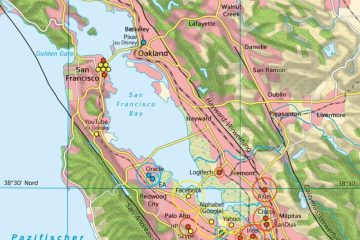Algeria’s Economic Growth and Challenges in 2023

Introduction
Algeria, the largest country in Africa, is undergoing significant economic changes, influenced by global oil prices and efforts towards diversification. As a key player in the Mediterranean, Algeria’s economy is crucial not only for its local population but also for regional stability and international energy markets. Understanding Algeria’s economic landscape is vital for investors, policymakers, and anyone interested in North African affairs.
Economic Overview
As of 2023, Algeria’s economy is demonstrating signs of growth. After a contraction due to the COVID-19 pandemic, the country has seen a rebound, driven largely by the oil and gas sector, which accounts for around 95% of export revenues. In the first quarter of 2023, the country’s GDP grew by approximately 4%, attributed to higher global oil prices and increased demand for natural gas, particularly from Europe amidst the ongoing energy crisis caused by geopolitical tensions.
The Algerian government has launched several initiatives aimed at economic diversification, focusing on renewable energy, agriculture, and tourism. Notably, President Abdelmadjid Tebboune has implemented reforms to encourage foreign investment, which is essential for sustainable growth. However, challenges remain, including high unemployment rates, particularly among the youth, and concerns over public spending.
Challenges Ahead
Despite the signs of recovery, Algeria faces several obstacles. A heavy reliance on hydrocarbons has led to vulnerabilities, especially with fluctuating oil prices. If prices decline, the Algerian economy could face significant setbacks. Furthermore, the need for structural reforms is critical; bureaucratic inefficiencies and regulatory hurdles deter foreign investment.
Social unrest due to economic frustrations remains a pressing issue, with protests occasionally erupting against government policies perceived as inadequate in addressing employment and living standards. Efforts to tackle corruption and improve governance are also ongoing, as they are vital for restoring public confidence and investor trust.
Conclusion
In conclusion, Algeria is at a crossroads, with the potential for substantial economic growth if the government can successfully implement reforms and diversify the economy. The continued reliance on oil underscores the importance of adapting to global energy transitions. For readers interested in North African dynamics, Algeria’s economic trajectory provides a compelling case study of challenges and opportunities in a pivotal region. As the country navigates these complexities, its future will have significant implications not only for its citizens but for the broader Mediterranean and global economies.









